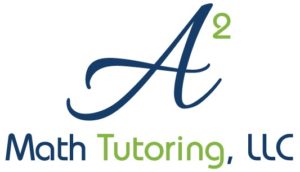How Calculus Changes Between Schools
With the vast majority of college majors having to take calculus these days, and the availability of secondary schools for us to take these classes (Rio Salado, community colleges) it can be super helpful to college students to know what the real differences between the classes are across different schools. Let’s take a look at how classes like Brief Calculus, Business Calculus, and Calculus with Analytic Geometry vary from school to school.
Arizona State University
Most of us are students at good ol’ ASU, where we’ll most likely take our calculus class. If you’re looking for quick and simple (most of the time) with your calculus classes, then this is usually where you’ll end up taking it. The nice thing about these courses at ASU is that they’re all standardized. Particularly for the business calculus classes, you can expect a very standardized course where the homework is very formal, and the same across all professors. The same can be said about the exams wherein just about every professor will utilize the same exam as others.
The difficulty is not very high in our tutor’s opinions of these classes, but can still pose a difficulty depending on who your professor is. This is where having a calculus tutor is vital as some concepts that span over a few weeks of class time can literally be taught in less than an hour. Many of our students who have struggled, sometimes even failing the course the first two times, quickly find success the first few weeks of each semester even after having only spent a few hours a week with us.
Rio Salado College
Rio Salado: everyone’s favorite place to turn when their math class is too difficult at their university, or for a quick online alternative. What many people don’t anticipate is that while it’s convenient, and completely online, they make up for it with often longer and more arduous material. For instance, in Business Calculus, there’s a good number of concepts included at Rio Salado that you simply won’t find at ASU or other community college curriculum. This makes the course incredibly difficult and people quickly find themselves underwater just a few weeks in. For those short on time, A-Squared Math Tutoring still suggests this as an option but highly recommends that you get a tutor to at least assist weekly with the homework. It can save even more time, or just actually help you pass the class.
Mesa / Scottsdale / Chandler Community College
At the community colleges, you can expect to actually get an in-depth knowledge of your calculus classes. Each professor creates their own curriculum and with smaller class sizes, you can expect a much more direct and helpful approach to the class. Some students still struggle while taking calculus at community colleges in person, but for many students this is an excellent alternative if they have the time and want to actually walk away from the courses withy some knowledge.
No matter the situation, A-Squared Math Tutoring should be your number one choice for A-Squared Math Tutoring in Phoenix, Tempe, Mesa, or Scottsdale for calculus. With years of experience, you know you’re getting the top professionals in the valley.
